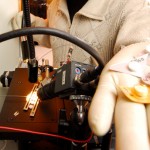Heart Device Wires by St. Jude’s Found Faulty
St. Jude’s recalled Riata wires, the wires used to connect life saving defibrillators, because they have been found to short circuit and melt conductors. These defects may not be as dangerous as actually removing the wires.
The American College of Cardiology reports that the wires put off a static noise, much like that on a TV, and it may reduce the power of the wire or shock the patient.
“The problem with this whole defect is there is no easy way to pick it up until an event happens,” said a Minneapolis Heart Institute cardiologist, Robert Hauser, in a telephone interview. “It’s an all or nothing situation. We are trying to figure out how to manage these patients, or a way to monitor them safely and effectively.”
St. Jude’sis doing a clinical trial of over 500 patients to investigate how often the problem occurs and how the wires wear over time. The company wants the public to know that there is not cause for overreaction if wires are protruding because 85 percent of the time the wires still work correctly.
However it is thought that once exposed the wire starts to flex and can cause more damage over time. The biggest threat is to the area of exposure where the flexing is the greatest and that is usually the area of the heart.
There is great concern that St. Jude’s new generation of wires, the Durata, will not be used by doctors due to the negative reports the Riata wire is getting. There have been no problems reported with the new generation wires as of yet however.
“The mechanism of failure is likely time dependent, it may take a year or more to see a higher failure rate in this newer lead,” wrote Raj Denhoy, an analyst with Jefferies & Co. in New York, in a March 21 note to investors. “We believe clinicians will increasingly become unwilling to take the chance that the Durata could fail at a higher rate over time.”





